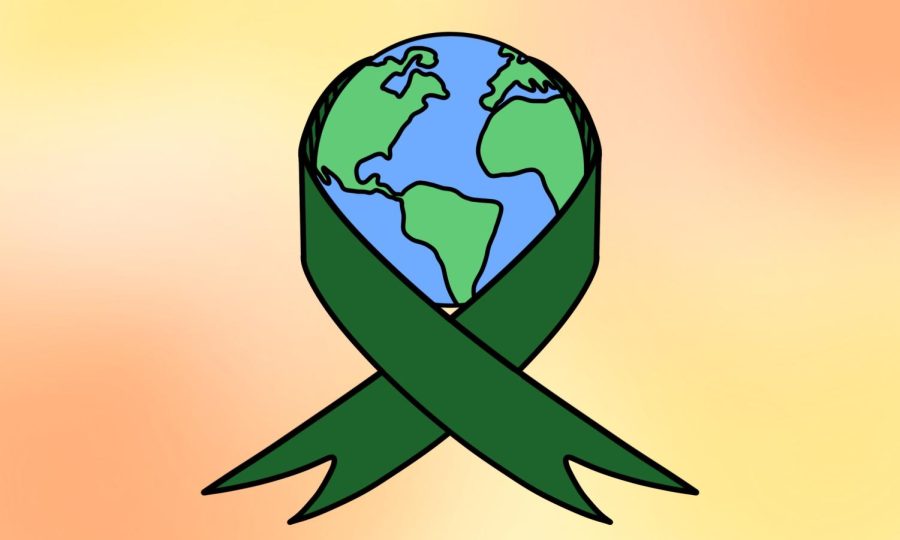Writer Ike Anya shares stories from upcoming memoir ‘Small by Small: Becoming a Doctor in 1990s Nigeria’
Daily file illustration by Olivia Abeyta
Writer and health consultant Ike Anya said countries cannot address their doctor shortages with national policy because they are a global health issue.
May 3, 2023
The African Studies Program hosted writer Ike Anya for a reading of his upcoming memoir “Small by Small: Becoming a Doctor in 1990s Nigeria” on Tuesday.
Anya, a consultant in public health in Nigeria and the U.K., has had work published in The Guardian, HuffPost and other news outlets, but his autobiography is his debut literary offering. The book is set to release May 18.
In his memoir, Anya recounts his experiences as a medical student in Nigeria during the ’90s, a time of protest and political unrest. In June 1993, Nigeria elected Chief M.K.O. Abiola as president for the first time since 1983. But in November that year, military general Sani Abacha seized power, destroying the progress made toward establishing democracy in Nigeria and reinstating a military government.
Anya said he was in his fifth year of medical training when he heard the news over the hospital radio.
“I am engulfed with a wave of despair so deep and visceral it feels like nothing I have felt before,” Anya read from his book, describing his firsthand experience. “It is as if all the hopes and fears of the past few months have crystallized in this pulse of feeling threatening to overwhelming.”
Anya said hundreds of medical students left the hospital and classrooms to join a spontaneous demonstration against the military government. Talking about the experience still makes him emotional, he added.
During the talk, Anya also shared his experience working in a small Nigerian hospital. The hospital he practiced at differed from a teaching hospital, which he said typically has more resources. He noticed a lack of equipment and medication for preventable diseases like respiratory infections and malaria, as well as a shortage of doctors.
“I begin to see a different side of medical practice in Nigeria, reflecting for the first time on the majority of our citizens who never even make it to teaching hospitals,” Anya read from his memoir.
He said the medical system in Nigeria has not improved over the past few decades, but recent technology like the internet may be helping to change that.
Individual countries attempt to solve doctor shortages through national policy, he said, but the issue should be addressed globally.
Because becoming a doctor in the U.S. is expensive, he said, Western doctors should study in low-income countries because medical school is often cheaper there. That would offer more people the opportunity to become doctors, Anya said. Many doctors in low-income countries are recruited by Western countries after their schooling.
“No Western country is training enough doctors to meet what their demand is, so they are indirectly outsourcing the training of the doctors and nurses to poorer countries without explicitly saying they are,” he said at the event.
However, Anya said Nigerian doctors who work in Western countries often face discrimination because some patients falsely believe they are less qualified.
Chicago resident Nche Onyema, an attendee, said she appreciated Anya’s commentary on doctor shortages as a global issue. She added that global medical staffing is a complex problem because low-income nations often don’t have enough resources to retain doctors.
Her father Dr. Godwin Onyema, a retired doctor, also attended the reading. He learned of Anya through a Nigerian newsletter and later realized they had trained at the same Nigerian hospital. He said he related to Anya’s stories about patients not valuing his expertise as a doctor due to biases.
“What he talked about was really familiar,” he said. “It’s the colonialism mentality.”
Nche Onyema said Anya and her father’s histories contained similar themes of resilience. Events like the reading make her feel more connected to her family history, she said.
She added she is looking forward to the book’s release and could feel the audience’s excitement in the room.
“Whenever I get to be exposed to stories about my history and where my dad grew up as a first-generation (American), it’s super rhapsodic,” she said. “I love that storytelling and being able to feel like I’m back on the ground.”
Email: [email protected]
Twitter: @KristenAxtman1
Related Stories:
— Global health studies prof discusses significance of Iran protests, future of the movement
— Northwestern named winner of Paul Simon Spotlight Award for Global Health Studies program
— Weinberg to offer adjunct major in global health studies at start of 2017-18 academic year


